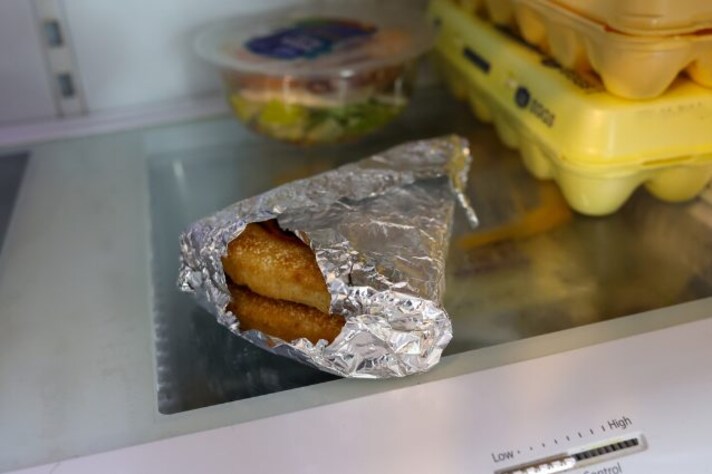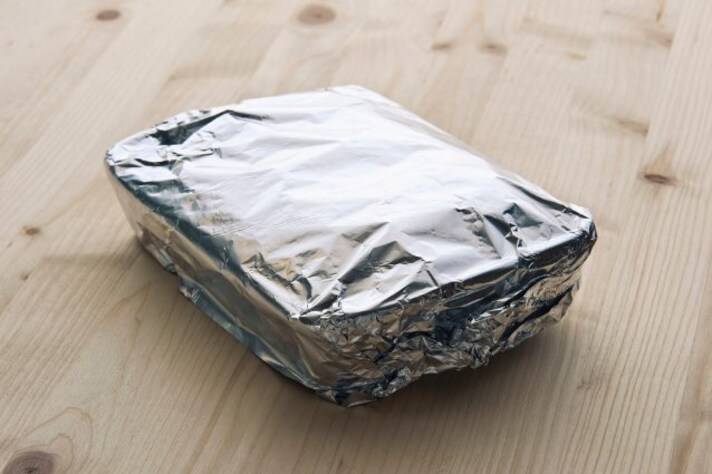Here’s Why You Should Never Wrap Your Food Leftovers in Aluminum Foil (Not Only During Thanksgiving)
A new study shows that wrapping your leftover food in aluminum doesn't protect it from bacteria, rendering it susceptible to foodborne ilnesses; moreover, aluminum foil might react with certain acidic or salty foods, causing metal to leak into your food - yuck! Store your leftovers, instead, inside of airtight containers inside of the fridge or the freezer!

We've all been there at least once: we have leftovers from dinner or lunch, we want to store them in the fridge for later use, and we reach for the aluminum foil. We think it's convenient and quick—after all, aluminum foil has a lot of uses in the kitchen, doesn't it? Especially now that we are submerged with Thanksgiving leftovers. You might want to rethink it, though: experts warn you that aluminum foil is the worst enemy of your leftovers!
The Safety Concerns
Wrapping your food leftovers in aluminum foil might seem like a good idea, but it's actually not safe. According to Dr. Zachary Cartwright, a food scientist at Aqualab in Chicago, aluminum foil is not airtight, which means it doesn't protect your food from bacteria and other contaminants. When food is exposed to air, it can quickly become a breeding ground for harmful bacteria, leading to foodborne illnesses. Additionally, aluminum can react with acidic or salty foods, causing the metal to leach into your food, which can be harmful if consumed in large quantities over time.

Cooked vs. Raw: No Exceptions
You might wonder if there's a difference between wrapping cooked versus raw food in aluminum foil. Unfortunately, the answer is no. Whether the food is cooked or raw, wrapping it in aluminum foil poses the same risks. The lack of an airtight seal means that both types of food are susceptible to contamination. Moreover, the reaction between aluminum and certain foods can occur regardless of whether the food is cooked or raw. So, it's best to avoid using aluminum foil for any type of food storage.
The Rightful Way to Store Your Leftovers
So, how should you store your leftovers to keep them safe and fresh? The best method is to use airtight containers. These containers prevent air from getting in and keep bacteria out, ensuring your food stays safe to eat. Glass or BPA-free plastic containers with tight-fitting lids are ideal. Make sure to label your containers with the date so you know how long the food has been stored. Leftovers should be refrigerated within two hours of cooking and consumed within three to four days. For longer storage, you can freeze leftovers, but be sure to use freezer-safe containers and label them with the date as well.

;Resize,width=767;)
;Resize,width=712;)
;Resize,width=712;)

